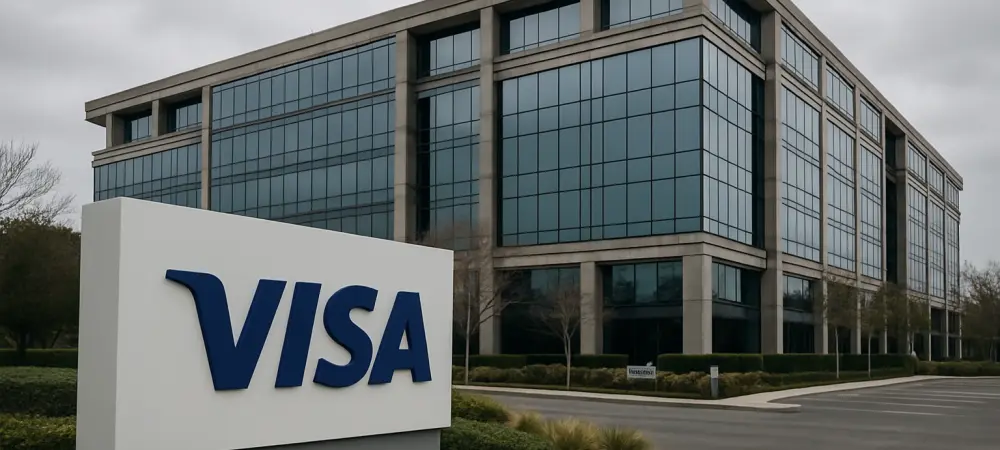What happens when a global payments giant like Visa, a cornerstone of financial innovation, decides to walk away from a market brimming with potential? In the complex arena of U.S. open banking, where digital finance promises seamless connectivity between banks and fintechs, Visa’s recent decision to pull out sends shockwaves through the industry. This isn’t just a corporate pivot; it’s a glaring spotlight on the regulatory tangles and industry conflicts stifling progress in American digital banking. The stakes are high, and the ripple effects could redefine how consumers interact with their money online.
The Core of the Crisis: Why Visa Stepped Back
Visa’s retreat from U.S. open banking isn’t a sudden whim but a calculated response to an environment fraught with obstacles. Unlike other regions where clear guidelines foster growth, the U.S. market presents a labyrinth of uncertainty that even a titan like Visa finds untenable. The company, known for its global dominance in payment networks, has chosen to redirect resources to more welcoming territories like Europe and Latin America, signaling deep concerns about the viability of this sector in America.
At the heart of this decision lies a regulatory void that hampers innovation. The absence of standardized rules for data sharing between banks and third-party providers creates a Wild West scenario, where powerful institutions can dictate terms that smaller players struggle to meet. Visa’s past ventures, including the blocked acquisition of Plaid due to antitrust concerns, highlight the steep challenges of navigating this fragmented landscape.
Open Banking’s Promise and Peril in the U.S. Market
Open banking stands as a transformative force in modern finance, enabling everything from real-time payment apps to personalized budgeting tools. By allowing fintechs to access bank data with customer consent, it fosters a connected ecosystem that empowers users with greater control over their financial lives. Yet, in the U.S., this promise is overshadowed by looming threats that could derail its potential. Recent moves by major banks like JPMorgan Chase and PNC Financial to consider charging fees for data access have sparked alarm. These costs, while framed as necessary for security, risk pricing out smaller fintechs, potentially stifling the very innovation open banking aims to promote. For consumers, this could mean fewer choices and higher costs, as the dream of a seamless financial experience hangs in the balance.
Regulatory Roadblocks: A Deeper Dive into Visa’s Decision
Delving into the specifics of Visa’s exit reveals a market constrained by a lack of cohesive policy. In stark contrast to Europe, where regulations mandate free data sharing, the U.S. relies on voluntary agreements that often favor larger institutions. This disparity has created a contentious environment, where banks and fintechs clash over the rules of engagement, leaving companies like Visa caught in the crossfire.
The Consumer Financial Protection Bureau’s Section 1033 rules, intended to standardize open banking practices, remain delayed, with ongoing revisions adding to the uncertainty. Visa’s strategic shift toward regions with established frameworks underscores the frustration of operating in a market where the ground rules are still being debated. Their successful acquisition of Tink in Europe further illustrates a preference for environments where regulatory clarity supports long-term investment.
Industry Divide: Banks and Fintechs Clash Over Data Access
Tensions between traditional banks and agile fintech startups are palpable, with each side staking out opposing positions on data sharing. A representative from a leading U.S. bank argued, “Protecting customer data comes at a significant cost, and it’s only fair that third parties contribute to those expenses.” This perspective reflects a growing push to monetize data access as a means of offsetting security investments.
On the flip side, fintech voices paint a grim picture of survival under such conditions. A startup founder warned, “Imposing access fees could be a death knell for smaller innovators, ultimately limiting the tools available to consumers.” This divide, fueled by regulatory ambiguity, creates a volatile atmosphere that likely influenced Visa’s decision to step back, avoiding a battleground where consensus seems elusive.
Charting a Path Forward for U.S. Open Banking
Despite Visa’s departure, there remains a window of opportunity to salvage and strengthen open banking in the U.S. Regulatory bodies must act swiftly to finalize Section 1033 rules, ensuring they balance the needs of banks with the survival of smaller fintechs. Clear, fair guidelines could prevent the market from tilting too heavily toward entrenched interests, preserving a competitive landscape.
Collaboration between banks and fintechs offers another avenue for progress. Joint initiatives, such as shared security protocols or graduated access models, could distribute costs more equitably while maintaining innovation. Industry advocacy for consumer-focused policies that prioritize data protection without curbing competition is also critical to rebuilding trust and momentum in this space.
Looking back, Visa’s exit from the U.S. open banking market served as a stark reminder of the systemic hurdles that plagued the industry. It highlighted the urgent need for actionable solutions to bridge the gap between regulation and innovation. Moving forward, stakeholders had to prioritize the establishment of a robust framework that supported both security and accessibility, ensuring that the promise of open banking could be realized without further loss of key players. The path ahead demanded bold steps—finalizing policies, fostering partnerships, and placing consumer interests at the forefront—to prevent more exits and secure a thriving digital finance ecosystem.

